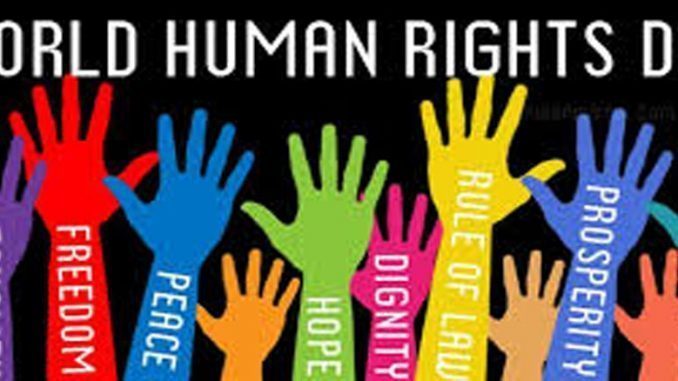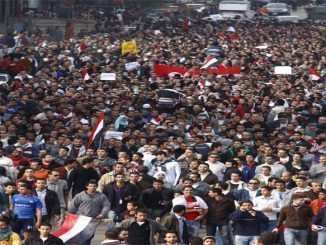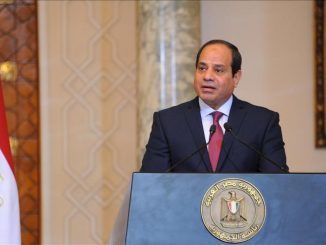
Social media activists have launched a hashtag ‘# Tell me about_al-Sisi_crimes’ (in Arabic) on abuses of the Al-Sisi regime against civilians on the occasion of Human Rights Day that commemorates the day on which the United Nations adopted the Universal Declaration on Human Rights.
The United Nations Commission on Human Rights Day said, “This year, Human Rights Day calls on everyone to stand up for someone’s rights! Disrespect for basic human rights continues to be wide-spread in all parts of the globe. Extremist movements subject people to horrific violence. Messages of intolerance and hatred prey on our fears. Humane values are under attack.”
In this context, Egyptian social media activists reacted to the universal event through a hashtag which highlights the regime’s crimes against humanity that included: the Presidential Guards massacre, Rabaa Square dispersal massacre, Sinai people displacement and Gaza Strip siege.
Since the military coup led by Abdel Fattah al-Sisi against Egypt’s first democratically elected president Mohamed Morsi, the iron curtain has fallen on human rights in Egypt .
The Egyptian military regime has engaged in one of the widest arrest campaigns in the country’s modern history, targeting a broad spectrum of political opponents.
According to Human Rights Watch and local rights groups, “Between June 2013 and May 2014, the Egyptian authorities arrested or charged at least 41,000 people, and 26,000 more may have been arrested since the beginning of 2015.”
Enforced disappearance, arbitrary detention, military trials, and human rights violations at Egypt’s prisons have marked al Sisi’s reign.
Aa for enforced disappearance, Amnesty International released a report in July 2016, saying that hundreds of Egyptians have been forcibly disappeared and tortured in a “sinister” campaign to wipe out peaceful dissent in the most populous country in the Arab world.
Philip Luther, Amnesty’s Middle East and North Africa director said, “Enforced disappearance has become a key instrument of state policy in Egypt. Anyone who dares to speak out is at risk, with counter-terrorism being used as an excuse to abduct, interrogate and torture people who challenge the authorities.”
In the same context, the Egyptian Coordination for Rights and Freedoms (ECRF), a non-governmental rights group, released a report on enforced disappearance covering the period from the beginning of January 2016 to the end of June. The Egyptian rights group said that it documented 1000 enforced disappearances cases in the first half of 2016, at a rate of 5 cases per day.
Moreover, the number of arbitrary detention has escalated since the military coup. The Egyptian Coordination for Rights and Freedoms (ECRF)has documented 26,207 detainment incidents from the Egyptian security institutions in 18 months.
In addition, Amnesty International stated in its annual report of 2015-2016 that “The criminal justice system continued to serve as an instrument of state repression, with courts convicting hundreds of defendants on charges such as “terrorism”, “unauthorized protesting”, engaging in political violence and belonging to banned groups, after grossly unfair mass trials in which prosecutors did not establish the individual criminal responsibility of the defendants.”
It added that “At least 3,000 civilians stood trial before unfair military courts on “terrorism” and other charges alleging political violence. Many, including leaders of the Muslim Brotherhood, were tried in mass trials. Military trials of civilians are fundamentally unfair.”
Furthermore, military trials have dramatically expanded in Egypt in the recent years based on October 2014 decree by Abdel Fattah al-Sisi that allowed the military to assist police forces in the protection of public facilities.
The ruling places the frozen assets under government custodianship, which means that the organizations and individuals can no longer make independent decisions about the seized money.



